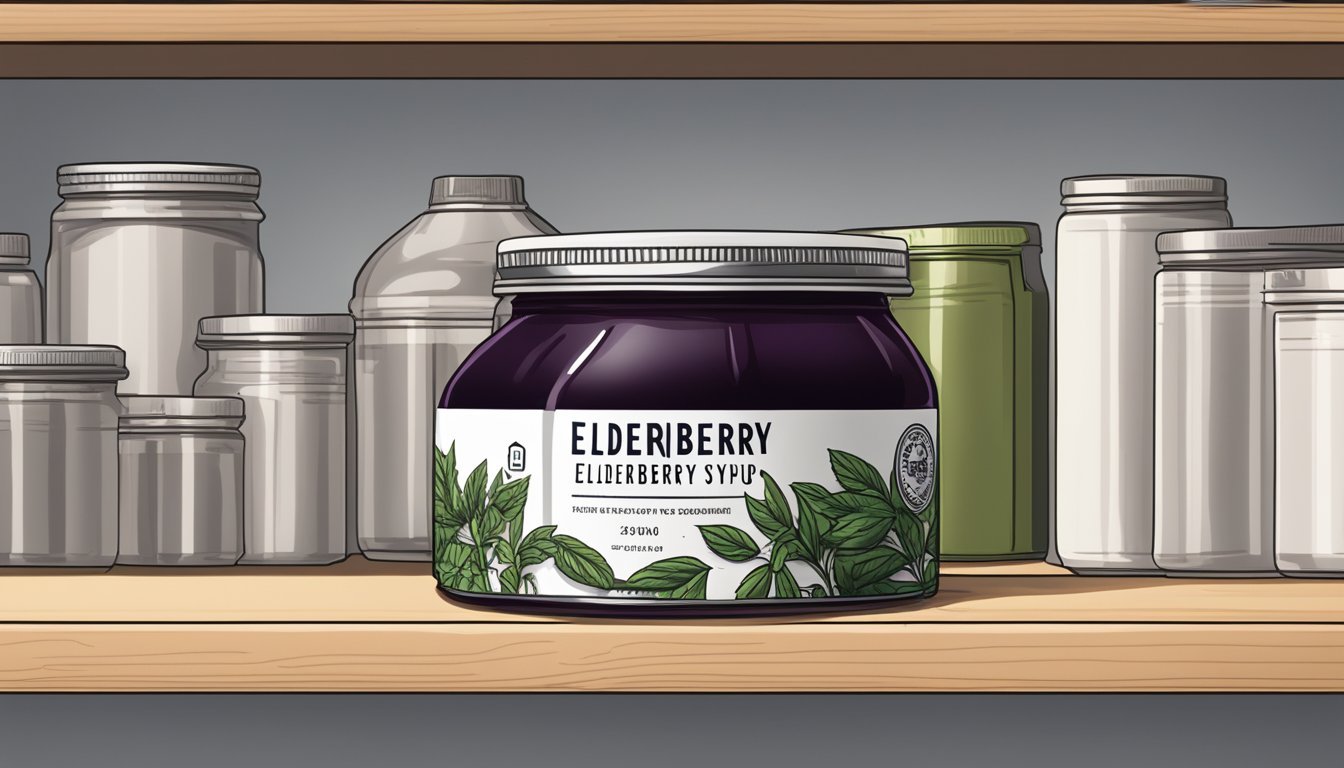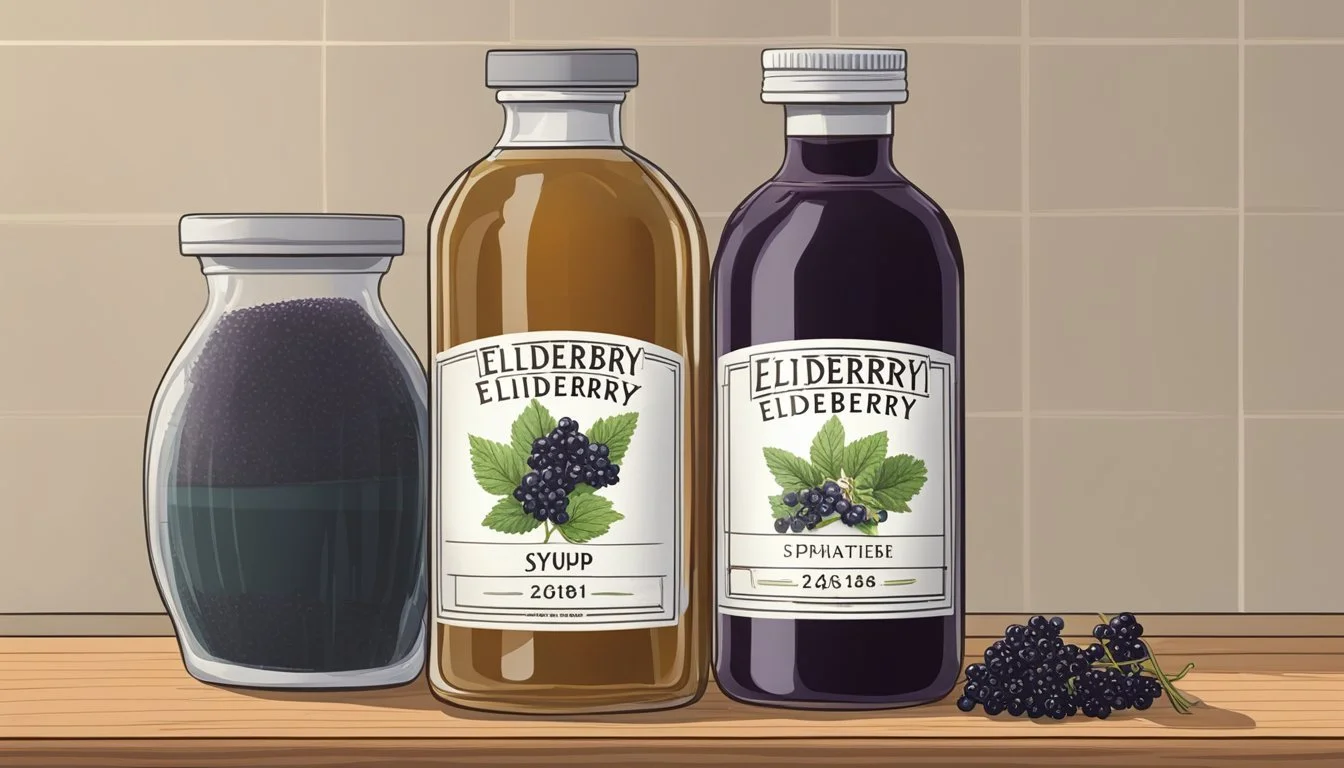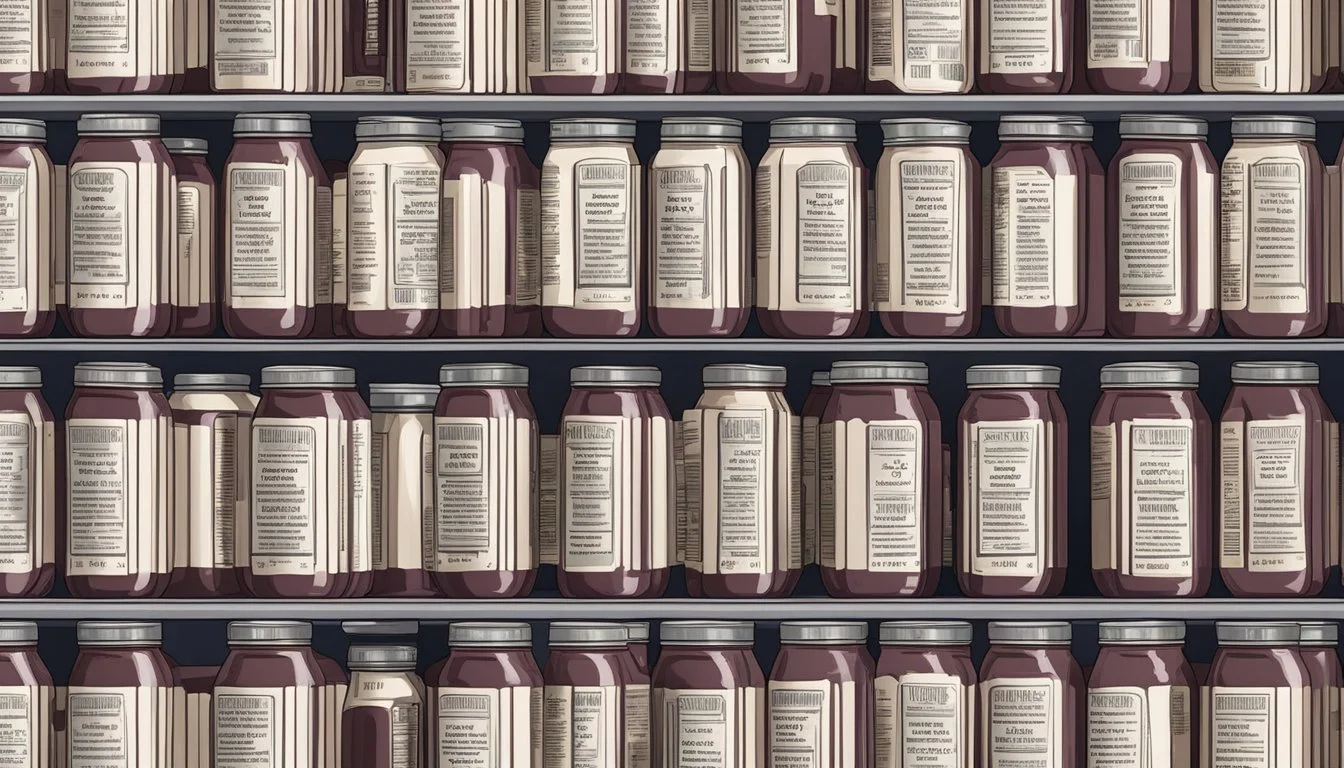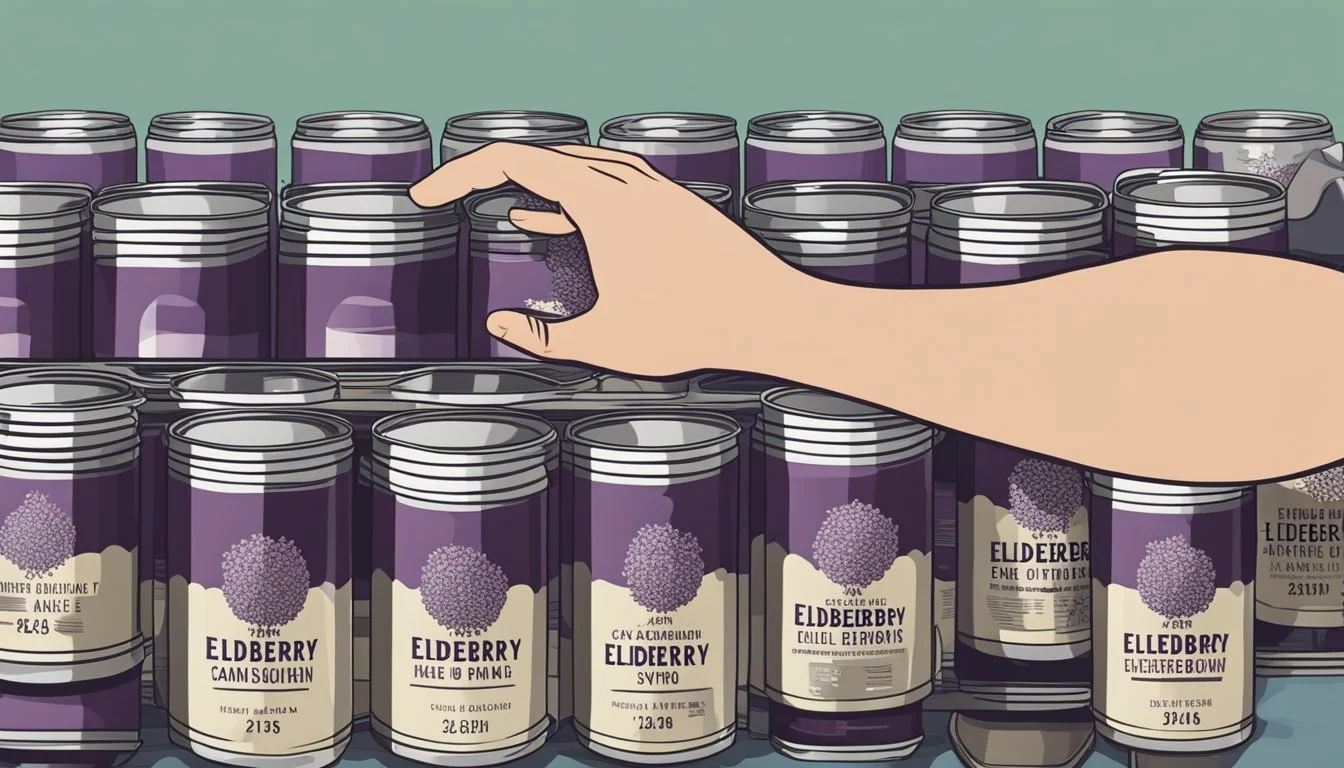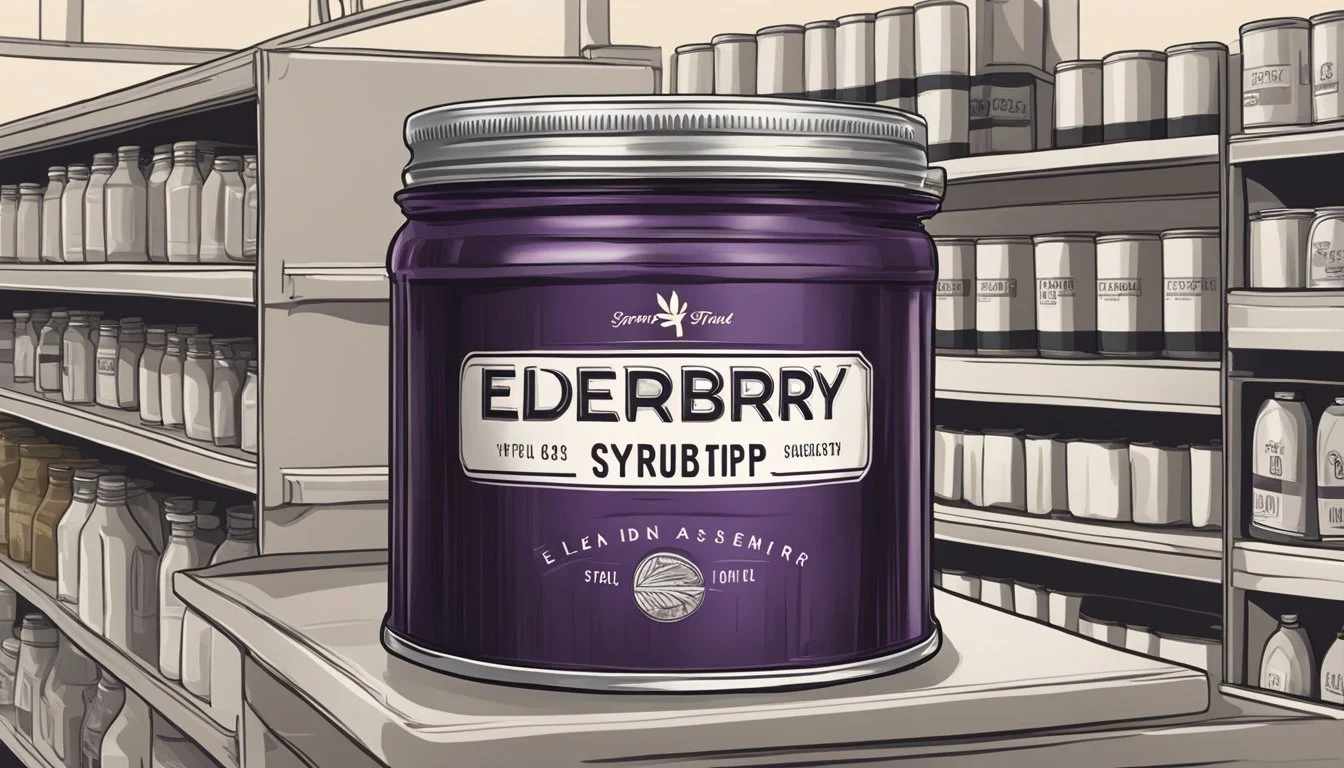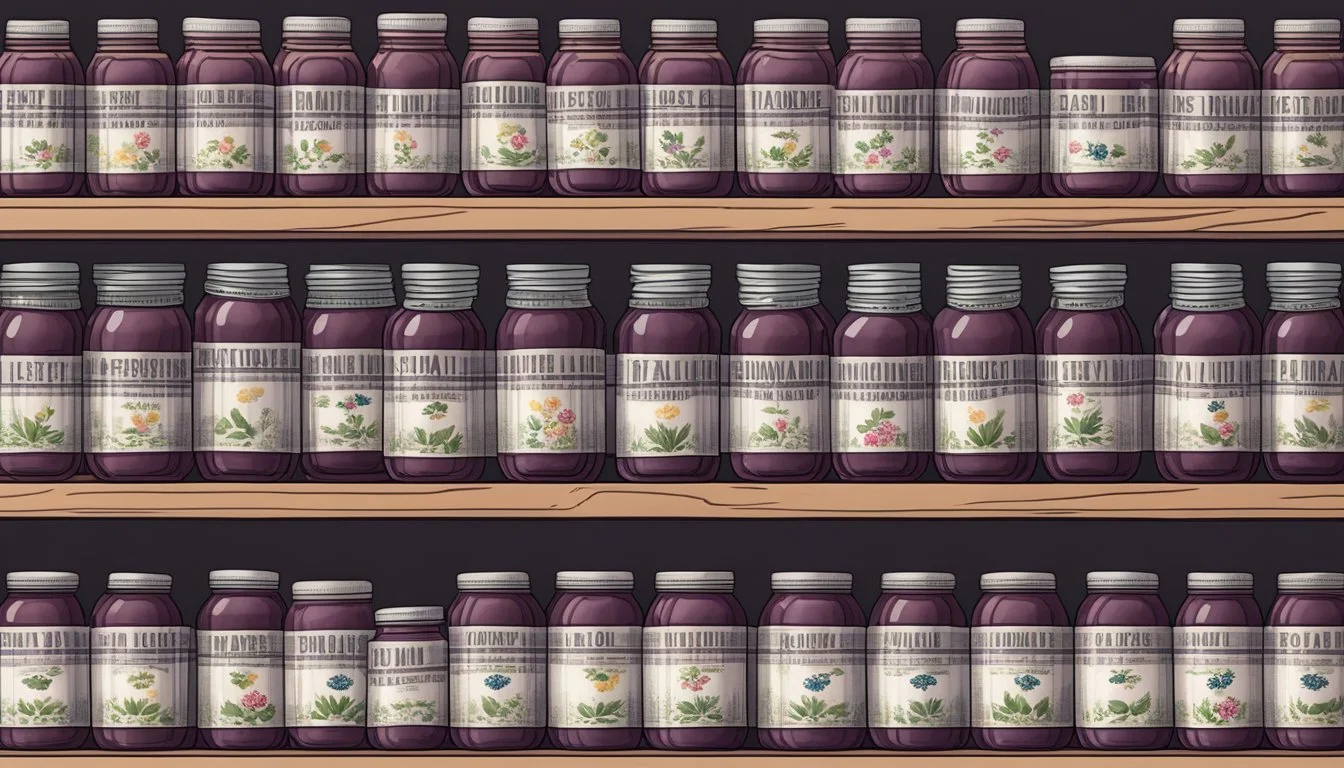How Long Does Canned Elderberry Syrup Last?
Shelf Life and Storage Tips
Elderberry syrup is a natural remedy long valued for its health benefits, particularly its ability to support the immune system. Derived from the dark purple berries of the elder tree, this syrup contains vitamins and antioxidants that are believed to enhance bodily resistance to ailments, especially colds and flu. Given its potential health benefits, it's not surprising that many people seek to preserve elderberry syrup through canning, ensuring a supply that lasts beyond the fresh berry season.
When canned properly, elderberry syrup can maintain its quality and potency for an extended period. The high sugar content of the syrup acts as a natural preservative, and when sealed in air-tight containers and stored in a cool, dark place, canned elderberry syrup can last for 1 to 2 years. It is important for individuals to follow safe canning practices to prevent degradation of the syrup's quality and to secure the health benefits it offers.
Understanding Elderberry Syrup
Elderberry syrup is widely known for its concentration of vitamins and antioxidants, which contribute to its immune-boosting properties. This section delves into the active compounds in elderberries, traditional syrup preparation methods, and the canning procedure to extend the syrup's shelf-life.
Active Ingredients and Benefits
Elderberry, the fruit of the Sambucus tree, is rich in antioxidants such as anthocyanins which give the berries their characteristic deep purple color. Its high vitamin content, particularly vitamin C, has been associated with immune support. Elderberry also contains flavonoids that have anti-inflammatory properties, making it a popular natural remedy for cold and flu symptoms. Healthcare professionals suggest that while elderberry syrup can provide health benefits, it should be used as a supplement to a healthy lifestyle rather than a standalone treatment.
Making Elderberry Syrup
A typical elderberry syrup recipe includes elderberries, water, honey, and various spices like cinnamon, cloves, and ginger. To make the syrup, elderberries are cooked down to release their juice, the spices are added for flavor and their additional health benefits, and honey is incorporated for natural sweetness and preservative effects. The mixture is then strained to produce a concentrated syrup. Some recipes also include lemon juice, which adds a tangy flavor and additional vitamin C.
Canning Elderberry Syrup
Canning elderberry syrup significantly extends its shelf-life and preserve its potency. The canning process involves pouring the hot syrup into sterilized jars, leaving the proper headspace, and sealing them to create a vacuum. Syrup should then be stored in a cool, dark place to prevent degradation. Properly canned, elderberry syrup can last between 1 to 2 years, providing a long-term option for those looking for an at-home, natural health supplement. It’s important to inspect canned goods regularly to ensure they remain safe for consumption.
Storage and Preservation
When preserving elderberry syrup, one must be mindful of factors like temperature regulation, exposure to air and light, and the method of sealing. These parameters crucially impact the syrup's shelf life and quality.
Refrigeration Guidelines
Storing elderberry syrup in the refrigerator is essential to ensure longevity. One should maintain the refrigerator temperature between 33°F and 40°F. When stored properly in a tightly sealed glass bottle, elderberry syrup can last approximately 90 to 180 days in the fridge.
Freezing Elderberry Syrup
For extended preservation, freezing elderberry syrup is highly effective. One can freeze the syrup in small portions, such as in ice cube trays, or in larger containers. When frozen at 0°F or below and kept in airtight containers, the quality remains optimal for 6 to 12 months.
Effect of Air and Light on Storage
Exposure to air and light can significantly reduce the elderberry syrup's shelf life. The syrup should be stored in a cool, dark place, ideally in an opaque container that’s tightly sealed to prevent oxidation and degradation caused by light.
Shelf Stability Factors
Shelf stability in room temperature conditions fluctuates greatly, often rendering the syrup unusable in just 4 to 5 days when left out in the open. Conversely, properly canned elderberry syrup, when kept away from direct sunlight and at a steady, cool temperature, can last for 1 to 2 years. Factors such as stability of temperature and absence of light are key to preserving the syrup's freshness and efficacy over time.
Determining Syrup Quality
When assessing the quality of canned elderberry syrup, one must look for specific indicators to ensure the product remains safe and retains its intended flavor. These signs include visual, textural, and olfactory cues that can alert a consumer to potential spoilage.
Signs of Spoilage
A consumer can identify spoilage if there are visible changes in the syrup. They should inspect for:
Presence of mold or unusual particles
Discoloration or changes in the syrup's hue
Separation or layering of the syrup's components
Changes in Consistency
The consistency of elderberry syrup can signal its quality. It should display a smooth, viscous texture. Consumers should be wary if:
The syrup is excessively thick or has gelled indicating potential overconcentration.
The syrup has become too watery which may suggest fermentation or degradation.
Smell as an Indication of Freshness
Smell is a direct indication of freshness and should not be overlooked. The syrup should maintain its characteristic berry aroma. Be alert for:
An off smell that deviates from normal is a clear sign of spoilage.
Loss of the flavorful and fruity fragrance can be an indicator that the syrup has started to deteriorate.
Health Considerations
While considering the shelf-life of canned elderberry syrup, it is crucial to understand its health implications. This section delves into how it should be dosed, possible side effects, and the importance of consulting healthcare professionals.
Dosage and Usage
The recommended daily dosage for elderberry syrup varies by age. For children ages one and two, it is typically 1-2 teaspoons, while ages three and up should take 1 tablespoon. During times of illness, such as colds or flu, the dosage may be increased for additional immune support. Elderberry syrup is also known for its vitamin C and antiviral properties, contributing to its overall health benefits.
Potential Side Effects
While elderberry syrup is generally considered safe, it can cause side effects in some individuals. The most common include:
Nausea or vomiting
Stomach cramps
Diarrhea
People with auto-immune diseases, allergies to the plant family, or those who are pregnant or breastfeeding should exercise caution and may want to avoid it altogether.
Consulting Healthcare Professionals
Before integrating elderberry syrup as a treatment or immune system booster, it is vital for individuals to consult healthcare professionals. This is especially crucial for those with underlying health conditions, those who take prescription medications, or individuals contemplating the syrup for young children. Healthcare professionals can provide tailored advice to ensure the syrup is used safely and effectively.
Shelf Life and Expiration
Elderberry syrup's shelf life can range from several months to years, greatly influenced by storage conditions and whether the syrup is homemade or commercially prepared. It is crucial for consumers to understand expiration dates, recognize the importance of these for safety, and know when to choose caution over risk.
Understanding Expiration Dates
Expiration dates on canned elderberry syrup indicate the end of the period during which the product is guaranteed to remain as effective and potent as intended. Commercial products often have a shelf life of approximately 1-2 years past the printed expiration date if stored in ideal conditions—away from light and heat. Once opened, refrigeration is necessary, with an advised consumption period of up to 6 months to maintain its quality.
Importance of Expiration for Safety
Adhering to expiration dates is integral for safety to prevent consumption of spoiled products. Syrup that has expired may not only lose effectiveness but can also become a breeding ground for bacteria. Safety should take precedence over the perceived wastefulness of disposing expired products. Mold growth or an off-putting smell are immediate indicators that the syrup should not be consumed.
When to Err on the Side of Caution
When appearance, smell, or storage history are questionable, it is wise to err on the side of caution. If there is any sign of mold, discoloration, or an unusual smell, the syrup should be discarded, even if this occurs before the expected expiration date. Consumers are advised to err on the side of caution to ensure consumption is safe and beneficial.
Additional Uses and Recipes
Elderberry syrup isn't just a delightful sweetener; it also brings a distinct flavor and immune-boosting properties to various dishes and homemade remedies. This section explores its versatility in cooking, wellness recipes, and the world of baking.
Elderberry Syrup in Cooking
Elderberry syrup can enhance many recipes with its deep, rich flavor. It works well as a glaze for roasted meats or as a tangy addition to vinaigrettes, thanks to its pleasant mix of sweetness and acid. For example, a tablespoon of elderberry syrup added to a balsamic dressing can transform a simple salad into a seasonal delight.
Glazed Meat Recipe:
Combine 2 tablespoons elderberry syrup with 1/4 cup olive oil, 2 tablespoons balsamic vinegar, and spices to taste.
Marinate chicken or pork before roasting for a unique flavor.
Homemade Remedies
The renowned wellness benefits of elderberry, particularly from the Sambucus plant, make it a staple in homemade remedies, especially during cold seasons. Elderberry syrup can be used to create an immune-boosting tonic by mixing it with other ingredients like apple cider vinegar, known for its health qualities.
Immune-Boosting Tonic:
Mix 1/4 cup elderberry syrup with 2 tablespoons apple cider vinegar.
Take a tablespoon daily, or add to warm water for a soothing drink.
Baking with Elderberry Syrup
Adding elderberry syrup to baked goods not only imparts a fruity depth but also serves as a natural sweetener. It can be an intriguing addition to pies or pastries, giving a burst of flavor that complements both sweet and tart ingredients. When baking, one can replace traditional syrups with elderberry syrup for a hint of sambucus essence.
Elderberry Pie Recipe:
Prepare your favorite pie crust and filling, then drizzle 1/4 cup of elderberry syrup over the filling before baking.
Bake as directed, allowing the elderberry flavor to infuse throughout.
In cooking, homemade remedies, and baking, elderberry syrup offers quality and versatility, enhancing dishes with its unique flavor and contributing to wellness practices with its beneficial properties.
Considerations for Homemade Elderberry Syrup
When creating homemade elderberry syrup, it is essential for one to consider the quality of ingredients used, the preservation methods applied, and how to measure the syrup's effectiveness against colds and flu symptoms.
Selecting High-Quality Ingredients
The foundation of potent homemade elderberry syrup lies in using high-quality ingredients. Elderberries should be ripe and fresh, as seasonality affects their freshness and taste. One must ensure the berries are free from pesticides and organic when possible, to retain a pure, unique flavor. Gingerroot, often added for additional benefits, should be fresh and minced finely to integrate well into the extract. The selection of ingredients directly influences not only the syrup's flavor but also its natural remedy potency.
Preservation Techniques for Homemade Syrup
Once the elderberries have been cooked and the juice extracted, preserving the syrup effectively is crucial for maintaining its shelf stability. Pouring the syrup into glass bottles or jars while it is hot and using proper canning techniques can increase its longevity. The sealed jars should be stored in a cool, dark place to keep the syrup preserved. Refrigeration can extend the shelf life of homemade elderberry syrup to 2-3 months, and for long-term storage, one can freeze the syrup for up to 6 months, ensuring the remedial qualities against colds and flu symptoms are maintained. A tincture form, using alcohol as a base, can also be considered for a more shelf-stable option.
Measuring Effectiveness of Homemade Syrup
The syrup's effectiveness can often be gauged by its ability to help alleviate colds and flu symptoms. The best measure of potency will be personal experiences using the syrup during illness periods. It should not be diluted excessively with water or other liquids, as this may affect the concentration of active components in the elderberries. Homemade elderberry syrup effectiveness can vary, but when preserved correctly and made from high-quality ingredients, its benefits as a natural remedy are maximized.
End-of-Season Tips
As the elderberry season draws to a close, individuals should consider preserving the valuable immune-boosting and anti-inflammatory benefits of elderberries. Proper preservation not only maintains the health benefits but also ensures the elderberry syrup retains its potency and flavor over time.
Maximizing Elderberry Benefits
To preserve the maximum health benefits, including the anti-inflammatory and immune-boosting properties of elderberries, one should harvest them at peak season. Peak season typically ensures the highest levels of active compounds, such as the antiviral agent sambucus. Elderberries can be used fresh or frozen to make syrup, and adding other health-supporting herbs may enhance both flavor and therapeutic value.
Sweeteners: Incorporating a sweetener like honey can not only improve the flavor but also contribute to the syrup's longevity and health properties.
pH Levels: Maintaining the correct acidity levels with the addition of lemon juice or vinegar can help in preserving the syrup, as a lower pH inhibits bacterial growth.
Preserving At the End of Elderberry Season
Canning elderberry syrup at the end of the season is an excellent way to extend its shelf life and enjoy its benefits throughout the cold and flu season. Properly canned and sealed elderberry syrup can last for about one to two years in cool, dark storage, whereas syrup stored in the freezer can last much longer.
Canning Process: Heat elderberry juice with an added acid such as lemon juice or citric acid, then pour it into sterilized jars for canning.
Freezer Storage: If freezing, one should leave enough headspace in containers for the liquid to expand.
The duration of the syrup's potency may decrease over time, and a general guideline for dosage is to consult a healthcare provider, as it can vary by individual. It's important to remember that homemade remedies should complement a healthy lifestyle and not replace medical advice or treatment.
Summary and Best Practices
When preserving elderberry syrup through canning, there are several practices to ensure both safety and longevity. An unopened bottle of canned elderberry syrup typically maintains quality for 1-2 years when stored in a cool and dark place, away from direct sunlight.
Shelf Life:
Refrigerator: 90-180 days in a sealed container
Freezer: 6-12 months to retain optimal flavor and potency
Pantry (unopened): 1-2 years in ideal conditions
Storing Tips:
Store in glass bottles or tincture form to prolong efficacy.
Use alcohol or vinegar as preservatives to enhance shelf life.
The syrup’s appearance, smell, and consistency are indicators of its freshness. Syrup that has changed in color, emits an off smell, or has altered consistency might have gone bad and should be discarded.
Ingredients: Incorporating honey, apple cider vinegar, cinnamon, and cloves not only adds flavor but also may act as natural preservatives. However, if mold is present, the syrup is unsafe for consumption.
Elderberry syrup is associated with boosting the immune system and aiding against colds and flu. Despite its health benefits, it’s important to consult a healthcare professional if intending to use it as a treatment for specific ailments.
Canning Process:
Ensure the cans are sealed properly to prevent exposure to air, which can lead to fermentation or spoilage.
Use a water bath canning method to ensure safe preservation.
Remember, the effectiveness of elderberry syrup might decline past its expiration date. Always check the product before use and avoid consuming if there’s any sign of spoilage.

